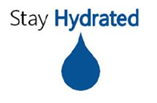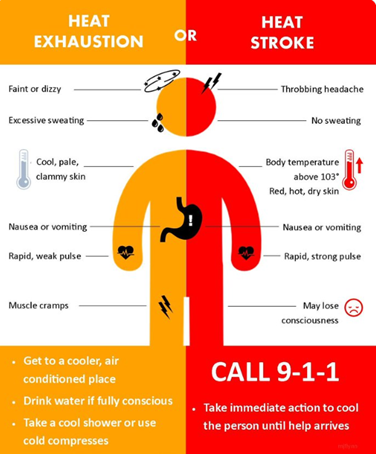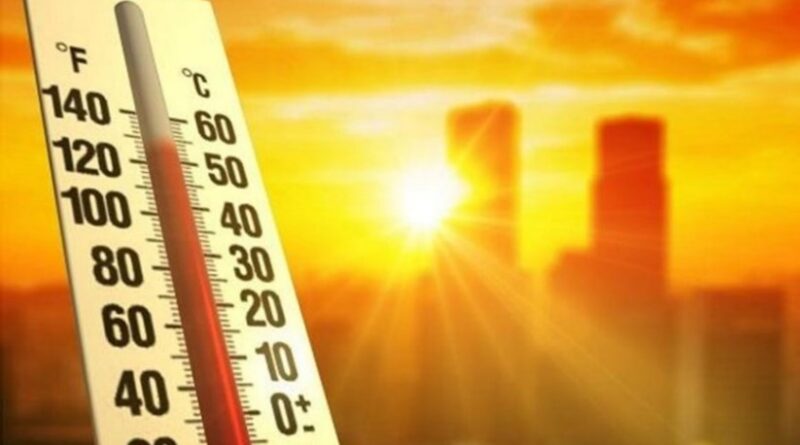July Is Extreme Heat Awareness Month
The Centers for Disease Control and Prevention (CDC) defines extreme heat as summertime temperatures that are much hotter and/or humid than average. Heat-related illness, like heat exhaustion or heat stroke, can happen when the body is not able to properly cool itself. While the body normally cools itself by sweating, during extreme heat, this might not be enough. In these cases, a person’s body temperature rises faster than it can cool itself down. This can cause damage to the brain and other vital organs.
NYCHA’s Environmental Health and Safety Department would like to share with you the following details about heat-related illness and how to prevent it.
Heat-Related Illness Risk Factors:
- High humidity
- Obesity
- Fever
- Dehydration
- Prescription drug use
- Heart disease
- Mental illness
- Poor circulation
- Sunburn
- Alcohol use
Ways to Prevent Heat-Related Illness:

Wear Appropriate Clothing: Choose lightweight, light-colored, loose-fitting clothing.
Stay Cool Indoors: Stay in an air-conditioned place as much as possible. If your home does not have air conditioning, go to the shopping mall or public library — even a few hours spent in air conditioning can help your body stay cooler when you go back into the heat. Please call 311 or click here for the location of a cooling center near you.
Schedule Outdoor Activities Carefully: Try to limit your outdoor activity to when it’s coolest, like morning and evening hours. Rest often in shady areas so that your body has a chance to recover.
Pace Yourself: Cut down on exercise during the heat. If exertion in the heat makes your heart pound and leaves you gasping for breath, STOP all activity. Get into a cool area or into the shade and rest, especially if you become lightheaded, confused, weak, or faint.
Wear Sunscreen: Sunburn affects your body’s ability to cool down. Put on sunscreen of SPF 15 or higher 30 minutes before going out and continue to reapply it according to the package directions.
Do Not Leave Children in Cars: Cars can quickly heat up to dangerous temperatures, even with a window cracked open. While anyone left in a parked car is at risk, children are especially at risk of getting a heat stroke or dying.
Avoid Hot and Heavy Meals: They add heat to your body!

Drink Plenty of Fluids: Drink more fluids, at least every 15 to 20 minutes, regardless of how active you are. Don’t wait until you’re thirsty to drink.
Replace Salt and Minerals: Heavy sweating removes salt and minerals from the body that need to be replaced. A sports drink can replace the salt and minerals you lose in sweat.
Keep Your Pets Hydrated: Provide plenty of fresh water for your pets and leave the water in a shady area.

Check for Updates: Check your local news for extreme heat alerts and safety tips and sign up for free emergency alerts from Notify NYC.
Know the Signs: Learn the signs and symptoms of heat-related illnesses and how to treat them.

For more extreme heat safety tips, please visit:

